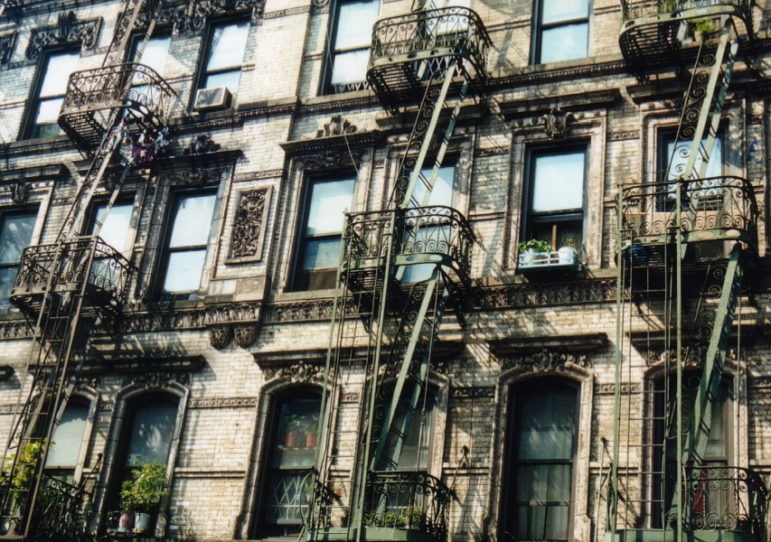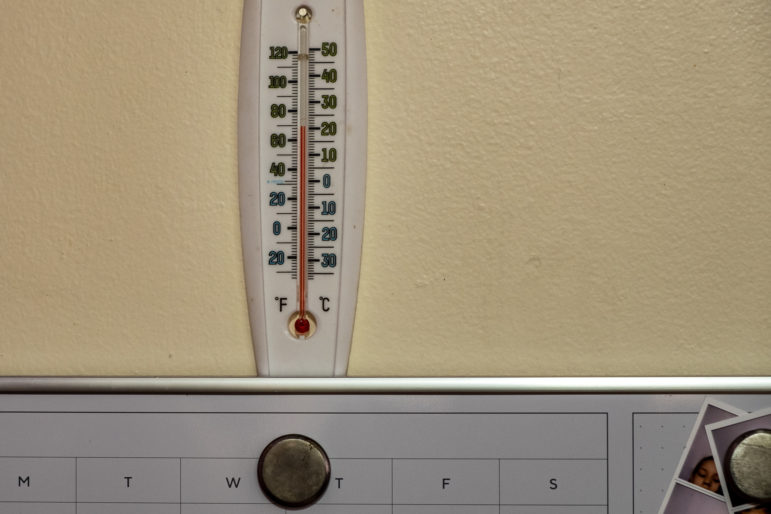
When election 2018 fades from memory, the renewal of the state’s rent stabilization laws will loom as an important test of whatever mix of leaders the voters send to Albany. Those laws, which cover around a million apartments, are up for renewal in June of 2019.
Under rent stabilization, property owners cannot raise the legal rent of an apartment by more than the amount authorized by a local board. That board bases its annual decision on rent hikes on information about costs faced by landlords and the economic fortunes of tenants. Rent stabilization currently only exists in the city and Nassau, Rockland and Westchester counties. A slightly different system called rent control governs increases on a smaller number of apartments.
During the 2018 Democrats primaries, the particulars of the existing rent-stabilization laws came up frequently, with candidates generally pledging to improve the laws for tenants. Many wanted to get rid of vacancy decontrol, under which apartments get deregulated if their rent passes a threshold, or vacancy bonuses, which permit a landlord to raise the rent every time a new tenant moves in.
But a few candidates—in particular, Democratic gubernatorial challenger Cynthia Nixon—went beyond that and proposed a system of universal rent stabilization that would place two million additional apartments in the system by extending the protections statewide.
Using GroundSource, we asked readers what they thought of the idea.
“I support it strongly,” wrote Judith Goldiner. “Housing is a critically important right and to be evicted a landlord should have good cause before doing so. In addition there is no reason for a landlord to raise the rent more than what is set by inflation or a board.
Cecilia Gaston agreed: “I live in East Harlem and gentrification is driving long-time residents out and damaging small businesses.”
Luke O’Brien was more cautious. “I support it somewhat,” he texted. “Rent Regulation in the recent past has been legally justified by the existence of a housing emergency. The emergency is the presence of a rental vacancy rate below 5 percent. This is written into the Emergency Tenant Protection Act. The vacancy rate is reviewed every three years. Generally, if a community has a vacancy rate below 5 percent, it can declare an emergency and vote to adopt the ETPA. Presently this can only be done in NYC, Nassau, Rockland and Westchester. If an attempt was made to apply Rent Regulation to communities where the vacancy rate is over 5 percent, it could be challenged in court.”
Goldiner, Gaston and O’Brien all identified as homeowners. Renters who wrote in generally supported the move.
“I am a housing rights activist and law student and I have seen how rent regulation rights can protect individual tenants preserve neighborhoods,” wrote one reader who asked not to be named. “Rent regulation not only protects tenants, it also serves to re-embed housing in society as a social good rather than just as an asset to be speculated on. Rent regulation is a good tool for keeping markets stable while still allowing landlords to realize profits off a real estate market with seemingly endless demand.”
Tara Klein put it more simply: “Real estate is out of control and squeezing the low and middle class. This is a great idea. But I’m not sure that luxury apartments should be subject to these increases. Not sure where that cut off should be but there’s a difference.”
Another reader echoed these themes: “Housing is a human right. The profit motive has left us with an oversupply of luxury housing while thousands lack a roof over their heads. We need government to reshape the market so it works for the citizens and not just corporations.”
“If we leave rents to landlords and the market, they will continue to spiral out of control. Wages for low income New Yorkers are stagnant and we cannot demand that people either pay crazy amounts of rent or face harassment and neglect until they are displaced,” said another, who noted that rent stabilization doesn’t only confer more reasonable rents, but also rights, to tenants.
J.T. Falcone, a policy analyst at United Neighborhood Houses, also made that point: “After years of federal and state divestment from public housing, we have limited options for permanent, stable, affordable housing in the free market. One of the most compelling arguments for universal rent control are the rights (particularly the right to renew leases) afforded to tenants.”
To Monique Thompson, homelessness creates a case for the change. “If we have rent stabilization statewide it can cut down on folks who find themselves homeless due to rising rents.”
To become part of our GroudSource network, sign up here.








4 thoughts on “Here’s How Readers Feel About Universal Rent Control”
My guess: this article is going to provoke more comments than most. Three observations:
First, as NY State’s Constitution is currently interpreted and enforced, in NY State, housing is a basic right: http://www.coalitionforthehomeless.org/our-programs/advocacy/legal-victories/the-callahan-legacy-callahan-v-carey-and-the-legal-right-to-shelter/
Second, the responsibility to fulfill that obligation is on “… the state … and its subdivisions”, not on the private sector. When residential rent is regulated, predictable consequences include neglected maintenance and, when residential buildings include commercial space, high rent increases for commercial tenants. Building owners have to get the money somewhere. “Money for what?” you ask. This leads to …
Third, whatever expenses a building shoulders, real estate taxes probably go up at a higher rate than regulated rents. Compared to 1-to-3 family homes, residential apartment buildings (rental and co-ops / condos are treated the same) are taxed at a higher rate. Residential apartment buildings subsidize 1-to-3 family houses. Restricted rental income coupled with rising taxes is — guaranteed — to worsen the current situation for rental apartments.
I don’t have a smartphone, but here’s my opinion. I’d favor rent control as a limit on landlords’ abuse of power in the absence of other, more effective measures, but I generally consider price controls and other such interventions to be pretty ineffective compared to other, more direct and fundamental approaches. It would be far better to shift property taxes off of buildings and improvements and completely onto site value, tax land at full rental value, and distribute the proceeds as a basic income; that, combined with putting all municipally-owned land (including lands seized for nonpayment of taxes) into community land trusts, would undercut the monopoly power of landlords to price-gouge in the first place, without the market distorting effects of interfering with price formation. I’d also like to see the common law standard for constructive abandonment seriously weakened by statute in order to make all abandoned lots and buildings available for occupancy after a few years.
I’m the owner of a 4 family. How dare anyone tell me who and at what amount I can rent one of my apartments. I choice who I wish to have in “my property”. Why? Because I’m the one who saved and sacrifices all those years to to save up for the downpayment to purchase the property. My name is on the deed, my name is on the mortgage. The bank is coming after me for their money if the mortgage does not get paid…not anyone else. Therefore, that makes me the one and only decision maker concerning my property because Im paying the cost to be the boss. As for that amount of rent I charge , that is determined by the market. If the tenant thinks it’s too high..don’t live there. No one is making you stay . It’s called free will… tenants have the choice to live where ever they can afford. Don’t like or want to follow the rules in my building…MOVE!
Don’t like the rent I charge…MOVE! Saves landlord and tenant alot of trouble and stress. I’m sick and tried of people acting like we landlords are dragging tenants into our buildings and amazing them live there..
holding them hostage. We have chooses….find someplace ( anywhere) you can be happy and afford or buy your own property so you don’t have to worry about someone raising the rent on you or kicking you out. Let’s stop passing the blame and start being accountable for our own choices in this life.
I can understand feeling this way. I’m a homeowner with an apartment that I let out. But I also feel as though I enjoy the benefits of being part of society. Society is what enforces the law that prevents someone from coming and taking my house from me. Society is who would send the sheriff or marshal to evict my tenant if they stop paying. Society is what gives me a generous tax deduction on my mortgage interest, a tremendously valuable benefit. And I’m just not sure it’s fair to be able to benefit so much from being part of a society, and then say that your home is your castle when society asks you to price within reason the finite resource over which you have control.